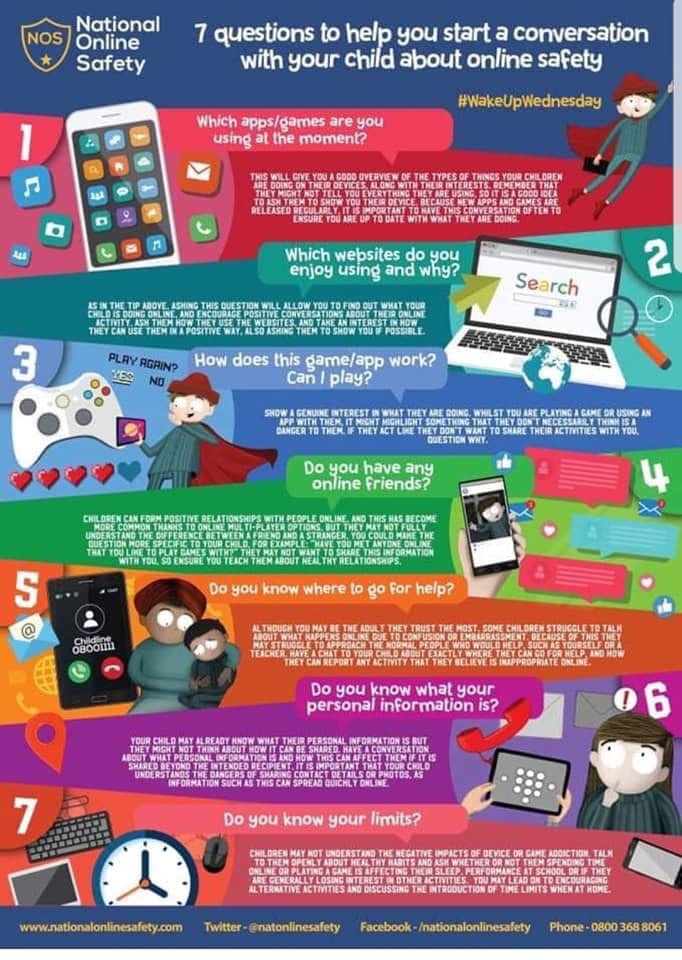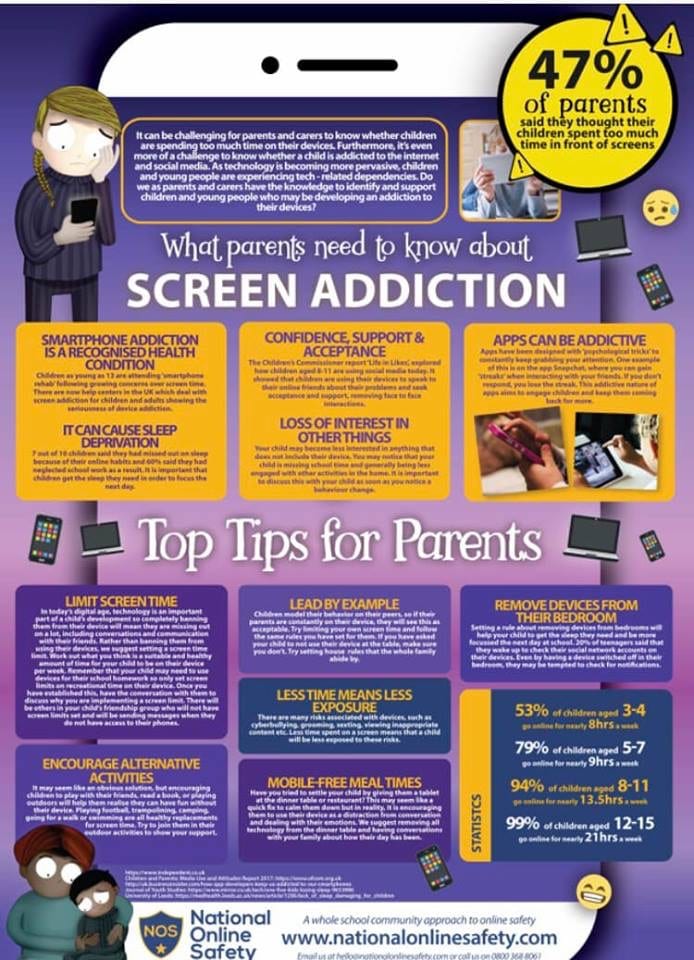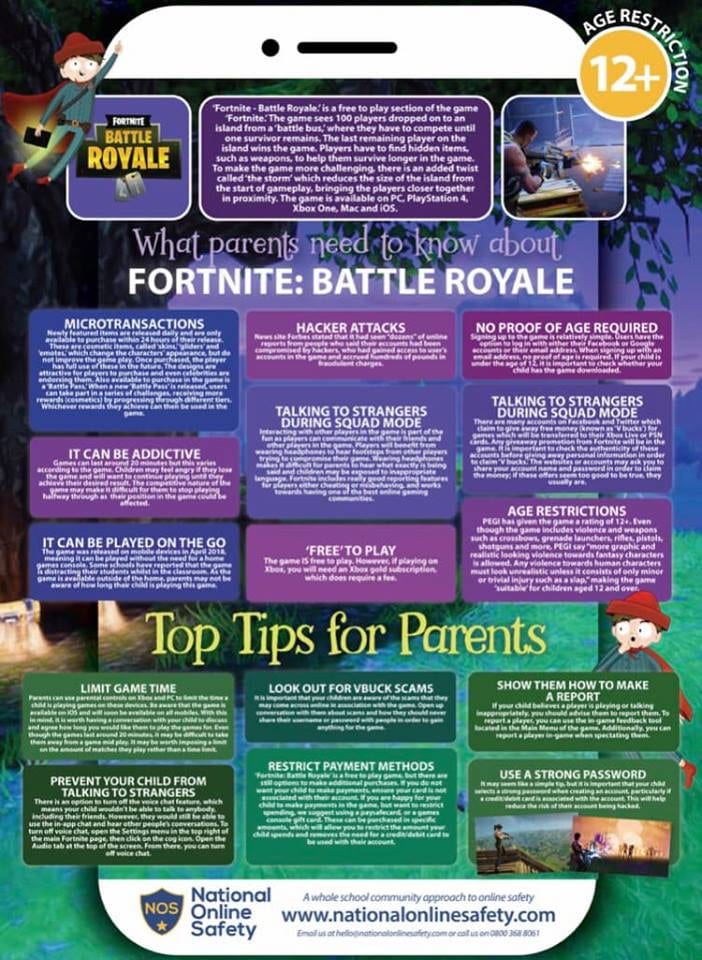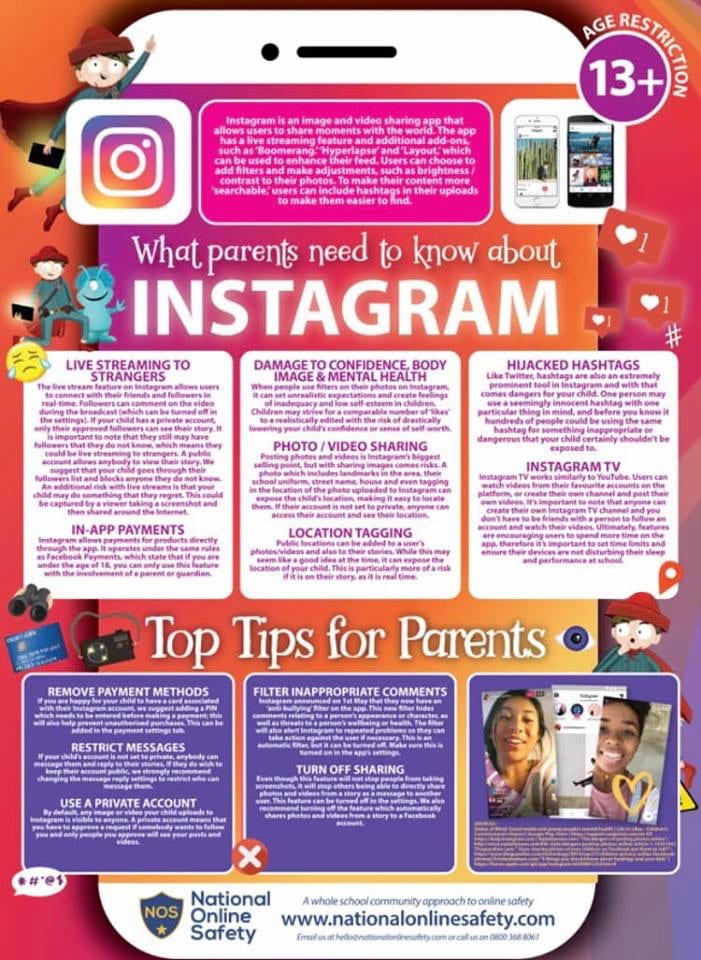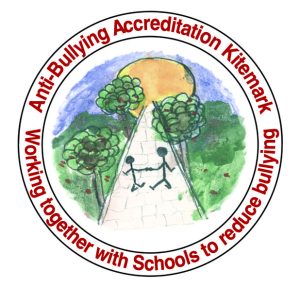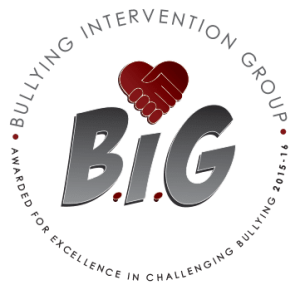This section of our website will provide you with links to really useful advice on how to be careful when you use the internet and some great tips to keep safe. If you are worried about anything you see online or people are asking you questions about where you live or saying nasty things to you please speak to your parents or teacher or follow any of the links below for help and advice. We have a number of leaflets available for parents about e-Safety.
You can use your computer, mobile phone or tablet for lots of fun things and to make lots of new friends from all over the world.
We not only aim to keep children safe in school but at home as well. Children can access the internet on a range of devices from laptops, ipads or mobile phones. At school we follow the SMART policy for safe use.
S for Safe
Keep your personal information safe by never giving out your full name, address, pictures or telephone numbers. Use a nickname if you are chatting!
M for Meet
Don’t ever meet up with anyone you have been chatting to. If you have to you MUST take an adult with you.
A for Accepting
Emails can be dangerous only accept them from people you know and trust.
R for Reliable
The internet is full of people who can pretend they are someone else. Can you trust the person is who they say they are?
T for Tell
If someone is unkind or something happens that you weren’t expecting you must tell an adult straightaway.
Online Safety Guidance
Children are growing up in a world with a bigger range of online activities than ever before and it is sometimes very hard for both children and adults to know how to stay safe.
Parents/Online Safety Information
Most parents will want to reduce the risks to their children, and remembering to set parental controls can reduce the risks to children, and reduce the risk to parents when children accidentally spend online money! The internet matters website explains this quite well. Online safety is not just about protecting children from some of the dangers of the internet – it is also about helping them manage their use of technology and most of the parental controls allow adults to set a maximum time for the use of a device or app.
Internet Matters is a site paid for by many British companies. It has a lot of good advice on adding parental controls as well as on most aspects of online safety. Parental controls will only help keep children safe. The best safety feature that a child has is their parent or carer. Take the time to talk to your child about the apps and games they are using and don’t be afraid to say no sometimes!
The range of online apps changes on a regular basis and the NSPCC have a site called Net Aware. This provides unbiased up-to-date information on current apps and sites along with advice to parents about dealing with issues.
The NSPCC have teamed up with O2 to provide advice to parents and have a free helpline on 0808 800 5002. They will also give support in any O2 shop – you do not have to be an O2 customer.
ThinkUKnow is the website aimed at children and their parents from the National Crime Agency. It has lots of useful suggestions and advice on how to report issues. It also has lots of games and activities including Jessie and Friends for the younger children and Band Runner for the older ones.
For the youngest children being tricked into sharing pictures can be an issue. LGfL have produced a lovely free video which has some great advice and a very catchy song!
Many children will at times suffer from online bullying. It is really important that they have someone they can talk to and know that it is not acceptable. Most apps and sites will have systems inn place that allow bullying to be reported. Your child’s school may be able to help.
Children can call Childline on 0800 1111 for advice on anything that is worrying them.
Finally since 2015 is has been a criminal offence for an adult to send a message with sexual content to a child (This is Section 67 of the Serious Crime Act 2015). If you are concerned that this might have happened please contact The Police without further using the device. This will help ensure that evidence can be preserved. The Police can be contacted by phone or from the ThinkUKnow website.
On 22nd December 2015 the Government produced the practical guide below to ensure parents and carers keep their child safe online
Government Practical Guide for Child Online Safety
The link below also informs of the PEGI ratings for children accessing various videos games, gaming apps and websites:
http://www.askaboutgames.com/age-rating-info/
Following safety advice on 25th February 2019, the recommendations were to share copies of some step by step parental safety guides for the most commonly used social websites/app/games in use at this current time. Parents/carers are reminded of safe internet and gaming use for their children. These guides have now been circulated via our online systems to parents/carers, please find copies below.
Adobe Reader
You may need a product like Adobe Reader (free download) to view our PDF documents on our website.

